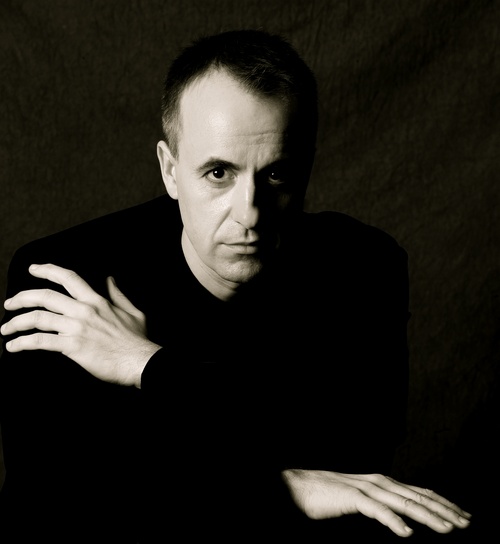Pianist Schmitt-Leonardy’s cool, intellectual approach offers mixed rewards

Wolfram Schmitt-Leonardy performed Friday night at the Miami International Piano Festival.
The Miami International Piano Festival’s Discovery Series continued Friday night with a recital by Wolfram Schmitt-Leonardy at the Colony Theater in Miami Beach. While Chopin’s 24 Preludes was the audience draw, the German pianist and pedagogue was most persuasive in Russian showpieces and Mendelssohn’s grandest solo keyboard score.
Schmitt-Leonardy is an intellectual pianist. His music making is never less than thoughtfully conceived and refreshingly devoid of excessive bombast but he is not the most idiomatic of Chopin players. Employing minimal rubato, Schmitt-Leonardy sought to cleanse the preludes of salon niceties. His carefully calibrated interpretations were less concerned with rhythm and pulse than emotional undercurrents.
Still, Schmitt-Leonardy proved more than equal to Chopin’s innumerable technical hurdles. He can play at the most extreme speed with clarity and accuracy. Throughout the cycle, Schmitt-Leonardy brought admirable transparency and precision with a digital command that never calls attention to itself.
In his most persuasive performance of the evening, Schmitt-Leonardy imbued Mendelssohn’s Variations Serieuses with a Brahmsian weight and gravity. There was an inexorable sweep and broad momentum in this masterful rendition of one of Mendelssohn’s atypically sober works as well as a kaleidoscopic sense of color.
Dmitri Kabalevsky was a composer much favored by the Soviet musical establishment who considered him an appropriately lightweight antidote to the angst-ridden scores of Shostakovich and the harmonically daring works of Prokofiev.
Schmitt-Leonardy offered nine of Kabalevsky’s Preludes, Op. 38. Written in 1944, these pieces are based on Russian folk songs, dressed up as slick vehicles for virtuosic display. There is a monochromatic sameness and superficiality to the melodies, which lack even the heated sensuality or toe-tapping catchiness of Khachaturian’s best work. These vapid cameos gave Schmitt-Leonardy the opportunity to display his formidable technical arsenal, the rapid hand-crossings and muscularity of the final prelude particularly impressive.
Prokofiev’s Sonata No. 3 is replete with jagged rhythms and seemingly lyrical episodes that turn harmonically astringent. Schmitt-Leonardy’s crisp articulation of the toccata-like rhythms captured the primitive drive of this youthful vehicle. Finding darker, more tragic shades in the quieter episodes, his sound became almost symphonic in the furiously paced Scherzo section. In the finale, Schmitt-Leonardy threw restraint to the winds, playing at acclerating speed down to the final thunderous chord.
The Miami International Piano Festival continues 3 p.m. Saturday at the Colony Theater in Miami Beach with a chamber music program featuring pianist Rachel Cheung, cellist Oliver Aldort and pianist Simon Porter, and at 7:45 p.m. with a recital by Joseph Moog. 305-935-5115; miamipianofest.com.
Posted in Performances
Leave a Comment
Sat May 18, 2013
at 11:55 am
No Comments





